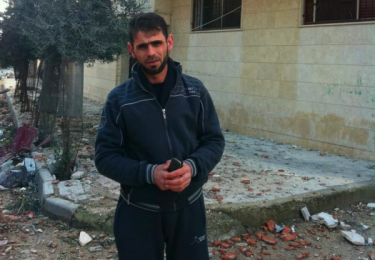Seven years after the arrest and disappearance of well-known citizen journalist Ali Mahmoud Othman, his family has been informed of his death. According to reports in April 2019, his family has been told he died in government custody on 30 December 2013, 21 months after his arrest.
Othman became the go-to person in Homs for many journalists in 2012, and eventually became the head of a media center called Baba Amr News. He has been described as being fearless, taking journalists to the frontlines, filming under dire conditions, and even carrying injured people to safety. He did many live interviews in which his face was not covered, which is believed to have made him a target of the Syrian security forces.
On 28 March 2012, Othman was arrested by a military unit in Aleppo, and transferred to prison in Damascus, after which Addounia TV aired what is believed to be a forced confession in May 2012. Local sources in Baba Amr reported that he had been tortured. Since then he has been disappeared in Syria’s prison system, and despite many organisations and governments making enquiries about his well-being in the past years, there was no response form the Syrian authorities. Like many Syrian families, Othman’s family lived with no information but with the hope that he would someday be released.
Thousands of prisoners of conscience in Syria have died under torture or have been executed while in detention, with many still missing or unaccounted for, and few details available about those who have died in prison.
Source: The Gulf Centre for Human Rights
